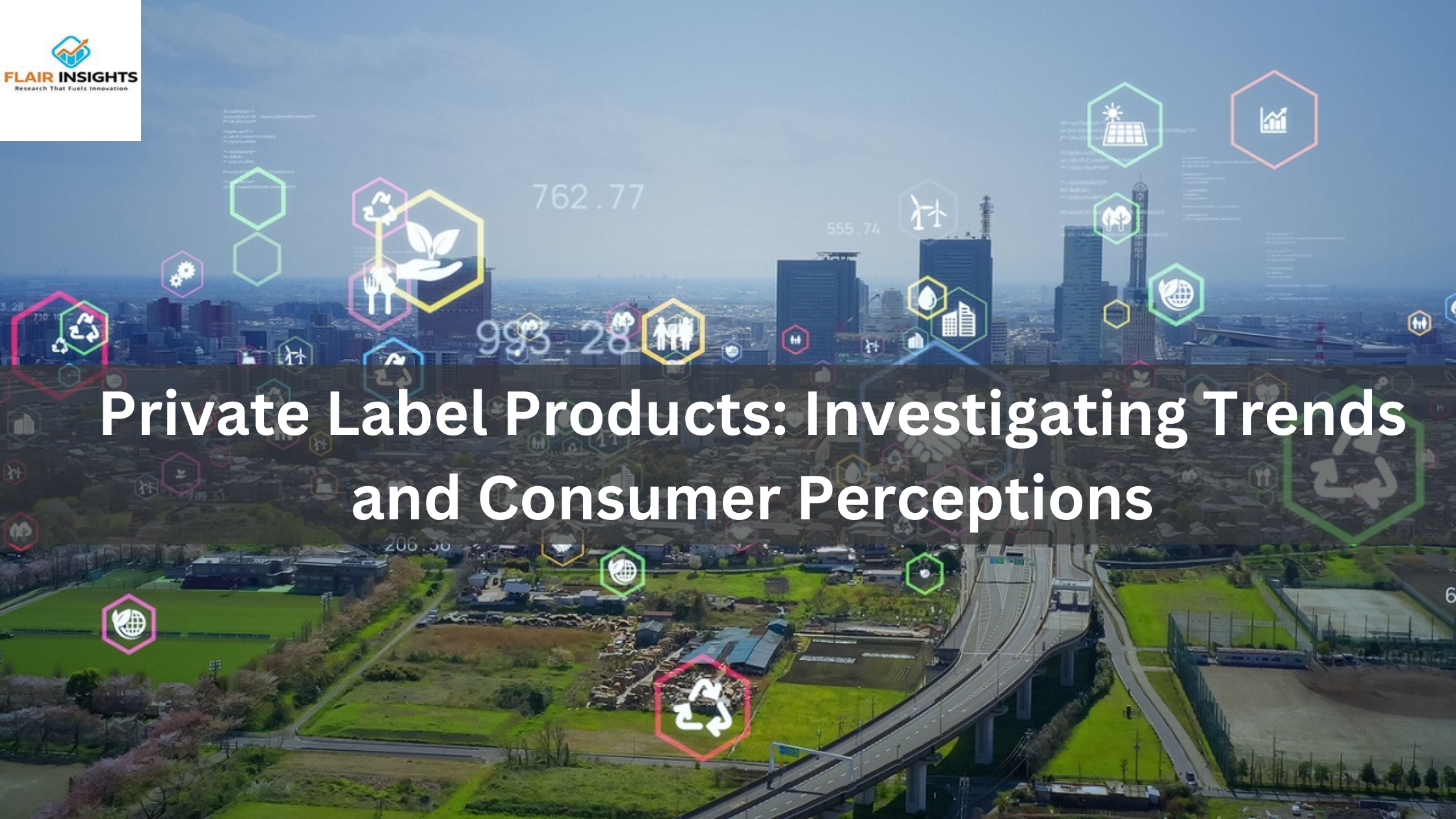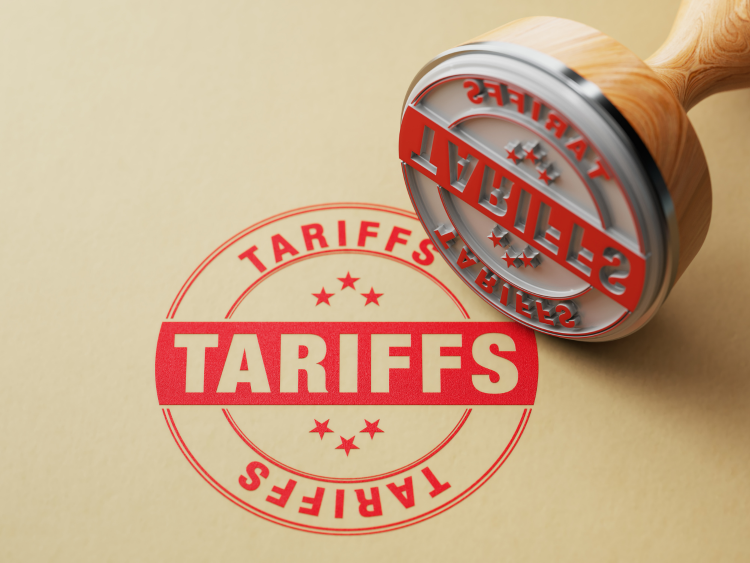
In this fast moving world of consumer goods, it has been observed that private label products have recently gained significant momentum and threateningly advanced against established brands. This surge does not pertain to a mere temporary trend but forms the underlying basis for changes in the retail landscape at a fundamental level. More specifically, the article offers a close, sweeping review of the multi faceted trends that are driving the growth of private label products toward the top and analyzes how consumer perceptions are possibly developing in a complicated manner from this shift in paradigm.
I. The Dynamic Landscape of Private Label Products
Colloquially known as store brands or generics, private label products have surely evolved far from what they used to be. Basically once a low-priced substitute, this is now going through a renaissance of sorts wherein retailers pump a lot into product development, marketing, and quality control in order to truly make private label offerings credible and innovative over well-established brands.
A. Diversification in Private Label Offerings
Diversification of private label offerings is one of the most important facets of their changing landscape. Where once retailers were content with the sale of generic commodities, they now show an avid interest in catering to niche markets by expanding organics and sustainable products, specialty foods, and unique formulations. The expanded product range is helping private labels satisfy consumer demand and shatter this stereotype of being associated with a limited repertoire of generic, one size-fits-all types of goods.
B. Premium Private Labels
This is a visible departure from the traditional route: Private-label products are now testing a premium positioning strategy. It calls for heavy investment in packaging, branding, and formulation of products to give them a feel of high quality. That will challenge the traditional belief that a higher price means a better product. By bringing aesthetics and presentation to the forefront, private labels have managed to shift consumer expectations and show that something inexpensive need not necessarily be cheap in quality.
II. Why Private Labels Are Gaining Popularity
A. Economic Reasons
Economic considerations form the central factor in consumer behavior, and private label products have really come to the fore as formidable alternatives during economically trying times. The value proposition created by private labels offering equivalent or superior quality at lower prices would really resonate in times of turbulence. Cost effectiveness, without losing out on quality, places private labels increasingly as a wise choice in navigating fluctuating economic landscapes.
B. Trust in Retailers
The trust consumers place in retailers is a linchpin in the success of private label products. The established retailers, due to their long time presence and relations with customers, have easily transferred this trust to private label products. Transparent sourcing, strict quality control, and ethical practices will become important elements in the creation and maintenance of trust among consumers. As the retailers concentrate their efforts towards such features, the consumers do prefer private label products as a reliable and credible option, which continues to drive the popularity of this product category even further.
III. Consumer Perception about Private Label Products
A. Quality Perception
Historically, most private-label products were perceived as inferior to their branded brethren. That is changing, however, as retailers make a real effort to increase the quality of their private label offerings. Consumer reviews and feedback increasingly include examples where private labels are on par or even better than name brands. This shift in consumer perception disrupts the long-accepted hierarchy of brand perception and creates a more complex view of quality in consumer goods.
B. Value for Money
The value-for money equation is one of the most potent factors driving the positive sentiments toward private label products. Increasingly, consumers realize that they are not really compromising on quality by going in for a private label, thus making it a very attractive option for those on a tight budget. Hence, when competitive pricing is combined with acceptable quality, this makes a very solid case for opting for private labels instead of branded options, accelerating a more comprehensive change in consumer behavior.
IV. How E-Commerce Helps the Growth of Private Labels
The growth in the e-commerce sector has driven the success of private label products, changing retail dynamics altogether. Online retailers have a single most unique advantage for reaching consumers directly without limitations to shelf space. This helps them in creating and pushing their private-label products much more successfully through the power of online platforms. This further encourages consumers to explore and experience new products very easily online, hence significantly boosting the budding growth of private labels in the digital marketplace.
V. Challenges and Future Outlook
While the trajectory of private label products is undoubtedly positive, there are still certain challenges in reshaping consumer perception. One such challenge in this market is shaking off the stigma that persists of buying a generic or store brand. To change entrenched perceptions and drive trust with the consumer, retailers will need to have constant improvement in quality and transparency as well as innovation if they are going to shift these perceptions. As private-label offerings continue to grow in many different categories, consistency in the quality of product offered will become even more paramount in sustaining this newfound success.
The future outlook for private label products thus becomes very bright indeed. With retailers increasingly aligning themselves to changing consumer preferences and backing it up with a strong pipeline of private label products, such products are likely to gain more ground as formidable competitors in the retail space. Trends in private label continue to evolve, reflecting that today's consumers no longer seek just inexpensive alternatives but rather high-quality, unique, and innovative products. This can be considered a paradigm shift with the potential to actually reinvent the future of retail and place private label products at the top of consumer preference, thereby really changing the character of the consumer goods industry.
Trending Posts

Global Silver Nanoparticles Market
The global silver nanoparticles market was valued at $2.08 billion in 2020, and is projected to reach $4.1 billion by 2027, growing at a CAGR of ~17%

The Basic Pension Comes - Federal Cabinet Decides On the Pension Supplement
Financial security in old age is an issue that is causing stomach pains for more and more people in Germany. Low-wage earners fear the elderly. The ba

The Future of Artificial Intelligence
In recent years, the field of artificial intelligence (AI) has witnessed unprecedented growth and transformative advancements. As AI technologies

"LNG Bunkering" Here is something you must know!
In the current scenario of growing pollution, companies are trying to adapt more and more sustainable approach that not only gives eco-friendly result

Sailing into the future with Autonomous Ships
Autonomous Vehicles (AVs) are the uproar of this era. After airways, thanks to the companies like Tesla, that people are now getting used to see drive

Rising Demand For Uninterrupted Power Supply Is Expected To Drive The Power Rental Market
Todays world is totally reliant on electric power. There are many things which are not manageable without electricity. Power rental is a concept where

Rapidly growing IT industry coupled with the trend of bringing your own device (BYOD) is expected to provide new opportunities for growth of Cloud Collaboration
Cloud collaboration is the process of sharing and co-authoring the computer-based work through cloud technology

Fact check on UV Disinfection for COVID-19
Many regulatory authorities and bodies believe that UV disinfection technologies can play a role in a multiple barrier approach to reducing the transm

Vaccination: Vaccination Against Measles is Now Mandatory in Germany
The subject of compulsory vaccination has always heated peoples minds and caused emotionally charged discussions. The latest law in this area - the ob

The Global Ventilator Market Grows at a CAGR of 7.75 %
The Global Ventilator Market, which was at $688 million in the year 2016, is about to double by the year 2025, and reach a value of $1,347 million. Th
Recent Posts

Tariffs & Trade: Key Trends, Policies, and Market Impact
A tariff is a tax imposed by a government on imported or exported goods. It is primarily used to regulate international trade by either encouraging domestic production or generating revenue for the government.

The Global Buy Now Pay Later (BNPL) Market: Growth and Opportunities
The global Buy Now Pay Later (BNPL) market has emerged as a revolutionary financial solution, transforming how consumers approach shopping and payments. Offering flexibility and convenience, BNPL allows consumers to make purchases and pay.

Global Motorhome Market: Growth and Forecast
The motorhome market has gained significant momentum over the past decade, driven by rising interest in outdoor tourism, evolving consumer lifestyles, and advancements in vehicle design and technology. As a preferred option for travelers seeking.

The Global Poppy Seed Market: Growth and Trends
Poppy seeds, derived from the opium poppy plant (Papaver somniferum), have been a vital component in global culinary, pharmaceutical, and personal care industries for centuries. The global poppy seed market is gaining traction due to its versatility.

Global Plant Breeding and CRISPR Plants Market
The global food industry is facing immense pressure due to rising population levels, diminishing arable land, and the impact of climate change. Innovations in plant breeding, particularly the use of CRISPR technology, are reshaping the agricultural .

Global Pheromones Market – Trends, Opportunities, and Forecast
The global pheromones market has witnessed significant growth, primarily driven by the rising demand for eco-friendly pest control solutions in agriculture. Pheromones, natural chemicals emitted by insects and other organisms to communicate.

The Role of Technology in Oil and Gas Risk Management
In an industry as dynamic and complex as oil and gas, risk management is crucial for ensuring operational efficiency, regulatory compliance, and safety. Risk management software has become an indispensable tool for companies in this sector.

Global Smart Grid Sensors Market
The global energy landscape is undergoing a significant transformation, with smart grid technologies at the forefront. Smart grid sensors, a critical component of modern energy grids, enable efficient monitoring, energy distribution.

Global Photovoltaic Glass Market Research Report
The global photovoltaic (PV) glass market is experiencing unprecedented growth, driven by the accelerating shift towards renewable energy and the integration of sustainable materials in construction. This report delves into the market’s key growth.

Exploring the Growth of the Global Micro Solar Inverter Market
The Global Micro Solar Inverter Market is forecasted to expand significantly, growing from an estimated value of USD 4.8 billion in 2024 to USD 14.6 billion by 2030, with a CAGR of 24.2%. This growth reflects increased adoption of solar energy system
.png)